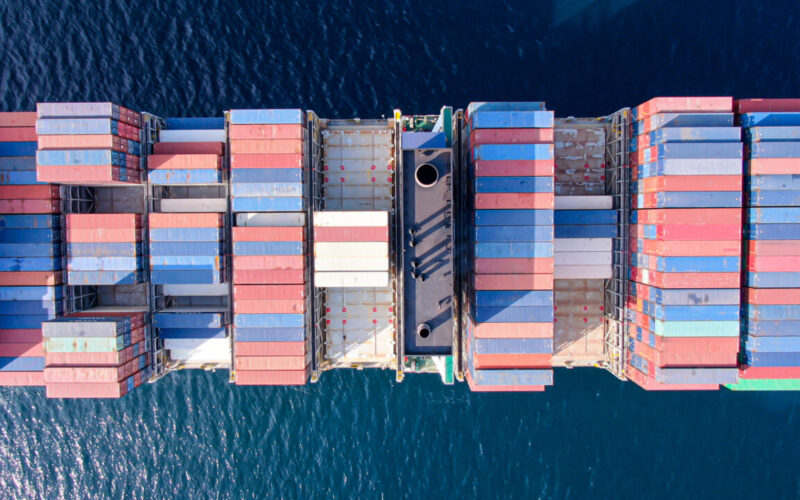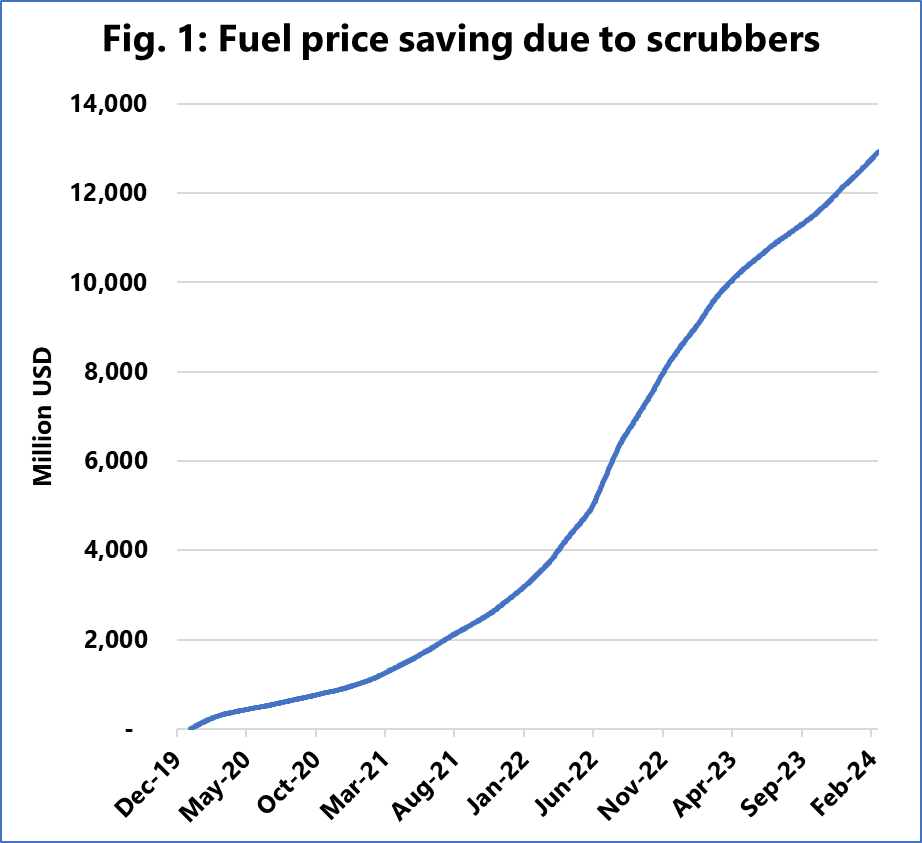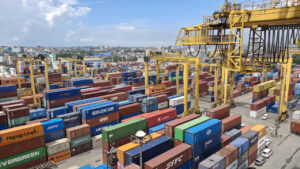According to Sea-Intelligence, ships’ exhaust gas cleaning systems (EGCS) known as ‘scrubbers’ have saved $13 billion worth of shipping fuel.
Scrubbers allow shipping lines to run fuel oils with a higher sulphur content (IFO380), which is also cheaper.
Sea-Intelligence noted that an increase in scrubber installations would mean an increasing share of vessels that are capable of the cost savings potential of buying cheaper regular fuel instead of the more expensive low-sulphur Very Low Sulphur Fuel Oil (VLSFO).
The current price for premium on VLSFO is 166 USD/tonne, according to Sea-Intelligence.
Using a model to estimate worldwide fuel usage per day throughout the whole industry, shipping lines have saved a total of $13 billion through the deployment of scrubbers since the adoption of IMO2020.
READ: MSC to roll out scrubbers across fleet
Alan Murphy, CEO of Sea-Intelligence, said: “This development demonstrates that the shipping sector is motivated by regulatory actions that cost them money. However, it also demonstrates that monetary motive does not always result in the outcome that some proponents of regulation expect.”
Instead of converting to low-sulfur fuel, it is more cost-effective to utilise ordinary gasoline in conjunction with scrubbers, which is completely compatible with laws.
READ: Port of Prince Rupert proposes ban on polluting scrubbers
It then highlights the issue of policies aimed at reducing carbon emissions. Financially motivated regulations are taking effect, such as the EU’s ETS carbon price on shipping.
“What remains to be seen, is to which degree the industry will find other ways to abide by the regulation in letter, but not necessarily in spirit,” Murphy added.









